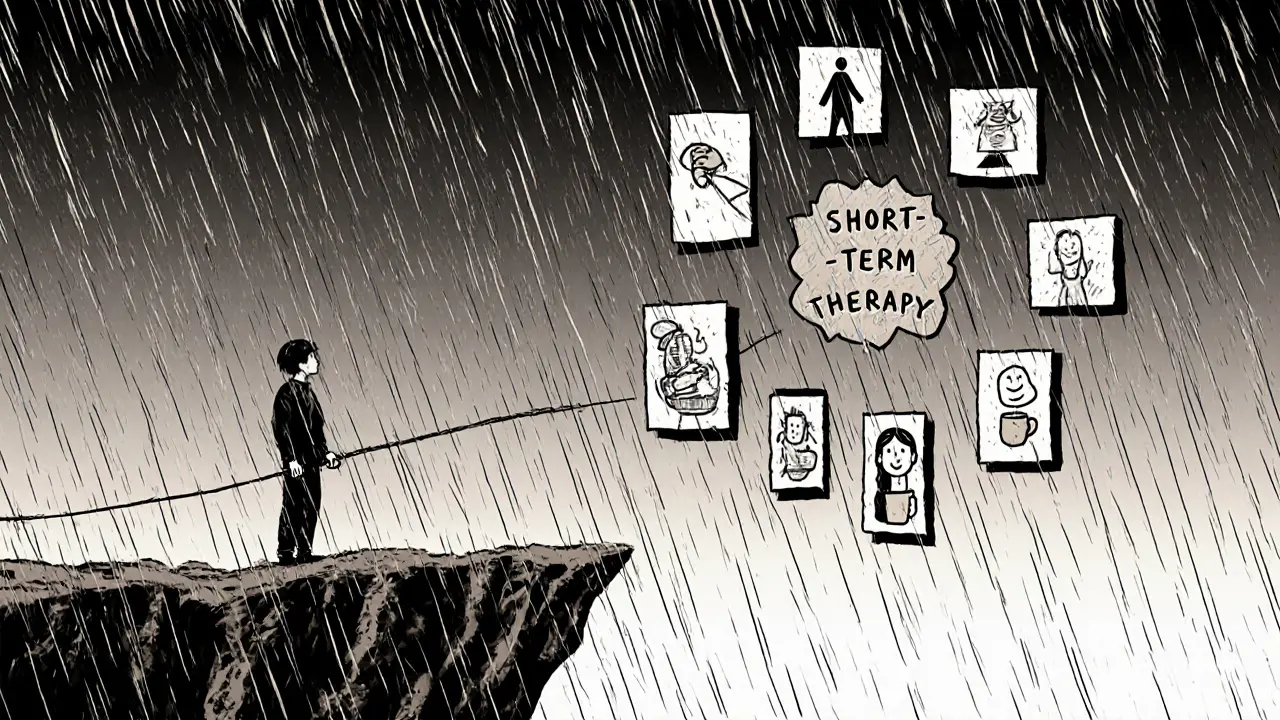Krátkodobá terapie: Kdy pomůže a co od ní čekat
When you're overwhelmed by stress, anxiety, or burnout, you don't always need years of therapy. krátkodobá terapie, cílená psychoterapeutická metoda zaměřená na konkrétní problémy a rychlé výsledky. Also known as krátkodobá psychoterapie, it works best when you know what's bothering you and want practical tools to fix it fast. This isn't about digging up your childhood — it's about finding ways to feel better now.
Most people who try kognitivně-behaviorální terapie (KBT), jedna z nejefektivnějších forem krátkodobé terapie, která pomáhá přehodnotit škodlivé myšlenky a změnit chování see results in just 6 to 12 sessions. You learn how to handle panic attacks, break cycles of perfectionism, or set boundaries without guilt. It’s not magic — it’s practice. You get homework, exercises, and clear steps. And if you’ve ever felt stuck in a loop of negative thoughts, KBT gives you a way out. Many of the posts here show how this approach helps with úzkost, běžný, ale často přehlížený stav, který může ovlivnit spánek, koncentraci i vztahy, vyhoření, stav vyčerpání, který se nevyřeší odpočinkem, ale změnou vzorců myšlení a chování, or even krizová intervence, okamžitá podpora při akutním duševním zhoršení. These aren’t abstract concepts — they’re real issues people tackle successfully in a few weeks.
What makes short-term therapy different? It’s focused. You don’t spend months talking about your past. Instead, you define one or two goals — like sleeping better, stopping avoidance, or calming down during arguments — and your therapist helps you get there with proven techniques. It’s ideal if you’re motivated, willing to try new things, and ready to do a little work outside sessions. It’s not for everyone — if you’re dealing with deep trauma or complex personality issues, longer-term approaches might be better. But if you’re tired of feeling stuck and want real change without a multi-year commitment, short-term therapy could be exactly what you need.
Below, you’ll find real guides on how these methods work in practice — from managing flashbacks to handling ADHD and depression together, from online therapy to what to expect in your first session. No fluff. Just clear, actionable info from people who’ve been there.
Krátkodobá terapie pomáhá přežít akutní depresivní epizodu, dlouhodobá řeší kořeny a předchází recidivám. Zjistěte, jak vybrat správnou délku léčby podle typu depresivního stavu, počtu epizod a osobních potřeb.
Pokračovat ve čtení...
